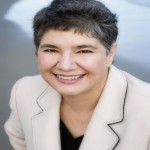 Recently, a mental health professional sent me an email full of degrading and disproved claims about single people. When I objected, he insisted that there was nothing wrong with any of his statements. It so alarmed me that a person with the job of helping other people, including single people, could have such demeaning and inaccurate attitudes that I wrote a four-part series about it.
Recently, a mental health professional sent me an email full of degrading and disproved claims about single people. When I objected, he insisted that there was nothing wrong with any of his statements. It so alarmed me that a person with the job of helping other people, including single people, could have such demeaning and inaccurate attitudes that I wrote a four-part series about it.
Mental health professionals are swimming in the same pool of stereotypes and mythologies and ideologies as everyone else, so it is not altogether surprising that they absorb the prevailing prejudices. Fortunately, some of them realize that there may be something wrong with the way they are thinking, and decide to do something about it.
In Israel, 6 married heterosexual therapists (5 women, 1 man) working at a family therapy center compared notes on their experiences working with single women clients. They found that the women seemed to take seriously the dominant cultural discourses that stigmatize single people and accord greater value to coupled people. The relentless message that their lives were not as worthy as those of married people was a source of great pain.
The therapists wanted to know whether they had been influenced by the same narratives that their single women clients found so hurtful. And if they were, what did that mean for the quality of the help they were giving those women?
To answer these questions, the therapists did something impressive. For 18 months, they met every other week, spending two hours together each time. They interviewed one another in depth over that time, posing questions such as:
- “When you hear the words ‘single woman,’ what words, thoughts, feelings, images, or memories come to mind?”
- About single men: “Do you think they experience similar or different feelings to those of single women?”
- “Did you have a single woman in your family of origin or among your family friends? What can you learn about the attitudes toward her in your family?”
- “What do you recall your mother saying to you regarding couplehood and marriage? Did your father convey similar or different messages?”
- “Would you prefer to alter your stories about singlehood? Which ideas would you prefer to be influenced by when you practice therapy with single women?”
The therapists were surprised and distressed to realize the extent to which they had unthinkingly accepted derogatory ways of thinking about single people. Looking back at their experiences growing up, they realized that their family members pitied single women. Here are some of their recollections:
- “In my family, one single woman had a successful career, was independent, non-conformist and a single mother. Yet, we pitied her for lacking a husband.”
- “The message in my family toward the single great-aunt was: She doesn’t have a life.”
- “My mother would say that one should marry early. If one waits, one risks ‘missing the boat’ and ending up like the poor old single aunt.”
Summarizing the attitudes in their families as well as their own beliefs, the authors said:
“…in none of our families was there an acknowledgement of singlehood as a lifestyle choice that was equal in value to heterosexual couplehood.”
“Most of us perceived single women as less happy, having fewer social skills and as being less successful, as well as flawed and having less satisfaction in life.”
The most disturbing admissions in the article were the therapists’ accounts of their attitudes toward their single women clients before they engaged in the 18 months of group discussions. For example, one said, “I thought it was my covert responsibility to get the woman to marry, even though I knew that this was not my task as a therapist.” Another said that the key question was always whether the single woman would marry. Most of the therapists felt more positively toward their single women clients who were mothers than those who were not, and they believed their therapy with the single mothers was more successful.
The therapists believed that their intensive exploration of singlism made them more aware, enlightened, and open-minded, and better therapists for their single women clients. They became more attuned to the real-life experiences of single women that were inconsistent with their assumptions about them. For example, one started noticing that “there were single women who complied with the traditional norm and married early, and it was a disaster for them.” The same person also realized that “other women left their marriages and for them, being single was the preferred story.”
The 18 months of consciousness-raising changed the therapists’ approach. Going forward, they wanted to “listen to single women clients not through the prism of singlism but with an open mind.” Their goal is one that I would like to see all mental health professionals embrace, with the single men in their practice was well as the single women:
“It is our hope that an awareness of and transparency about the discourses that influence will enable us to explore, together with any single woman client, the stories that have an influence upon her life. This exploration is to enable her to choose a lifestyle and form an identity that is right for her, in accordance with her values and intentions.”
[Notes: (1) The opinions expressed here do not represent the official positions of Unmarried Equality. (2) The comment option on the UE website has been invaded by spammers, so I have disabled comments for now. I’ll post all these blog posts at the UE Facebook page; please join our discussions there. (3) For links to previous columns, click here.]
 About the Author: Bella DePaulo (PhD, Harvard), a long-time member of Unmarried Equality, is the author of Singled Out: How Singles Are Stereotyped, Stigmatized, and Ignored, and Still Live Happily Ever After and How We Live Now: Redefining Home and Family in the 21st Century, among other books. She writes the “Living Single” blog for Psychology Today and the “Single at Heart” blog for Psych Central. Visit her website at www.BellaDePaulo.com and take a look at her TEDx talk, “What no one ever told you about people who are single.”
About the Author: Bella DePaulo (PhD, Harvard), a long-time member of Unmarried Equality, is the author of Singled Out: How Singles Are Stereotyped, Stigmatized, and Ignored, and Still Live Happily Ever After and How We Live Now: Redefining Home and Family in the 21st Century, among other books. She writes the “Living Single” blog for Psychology Today and the “Single at Heart” blog for Psych Central. Visit her website at www.BellaDePaulo.com and take a look at her TEDx talk, “What no one ever told you about people who are single.”


